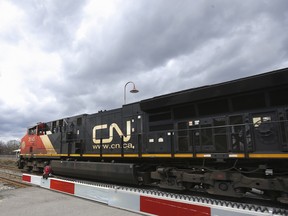TCI Fund Management’s Strategic Plan to Enhance Canadian National Railway (CN Rail)
TCI Fund Management has unveiled a detailed strategic plan aimed at improving the efficiency, profitability, and operational resilience of Canadian National Railway (CN Rail). The activist investor firm seeks to address CN Rail’s challenges by implementing cost-saving measures, optimizing its network, and enhancing customer service. TCI’s strategy is designed to counterbalance CN Rail’s competitive position in the railway industry while ensuring long-term sustainability.
Strategic Objectives and Key Initiatives
-
Cost Reduction and Operational Efficiency:
- TCI Fund Management has outlined a comprehensive plan to reduce CN Rail’s operational costs, streamline management, and execute share buybacks to boost shareholder returns. The firm asserts that CN Rail is overburdened with excessive debt, which is hindering its profitability. By simplifying the corporate structure, TCI aims to eliminate inefficiencies and improve overall performance.
-
Network Optimization:
- The plan emphasizes optimizing CN Rail’s network to enhance service quality, capacity, safety, and reliability. TCI has drawn parallels between successful cost-saving initiatives at rival companies such as Canadian Pacific Railway (CP Rail) and CSX Corp., which saw significant improvements in efficiency after implementing similar measures. CN Rail’s management team is under scrutiny for its operating ratio, which has deteriorated to the worst among top-tier railways since Ruest’s tenure began.
-
Share Buybacks and Capital Returns:
- TCI Fund Management proposes a buyback program of $5 billion next year, following CN Rail’s announcement that it will cut spending and streamline operations in response to TCI’s activist stance. The buyback initiative is intended to distribute profits to shareholders while improving financial flexibility for the railway company.
-
Conflict of Interest and Managerial Accountability:
- TCI Fund Management has raised concerns about potential conflicts of interest, particularly given its ownership stake in CP Rail. The firm argues that CN Rail’s management team lacks accountability and has failed to address critical operational issues, leading to a misstep in the takeover process earlier this year.
Potential Outcomes and Market Impact
If implemented successfully, TCI Fund Management’s strategy could significantly enhance CN Rail’s competitive position in the railway industry. The firm’s focus on operational efficiency, cost reduction, and strategic restructuring aligns with market expectations for improved profitability in North America’s railways. However, the outcome will depend on CN Rail’s ability to execute its plan without falling into the hands of unw ethical stakeholders or facing pushback from key management teams.
Conclusion
TCI Fund Management’s strategic plan represents a significant shift in CN Rail’s operational approach. While the firm aims to improve efficiency and profitability through targeted initiatives, success will depend on CN Rail’s commitment to transparency, accountability, and long-term sustainability. Investors will closely monitor the implementation of these measures to assess their impact on the company’s financial performance and market position.
Additional Resources:
For further insights into TCI Fund Management’s strategy and its implications for the railway industry, explore our comprehensive analysis section or browse our latest reports on transportation and logistics markets.



